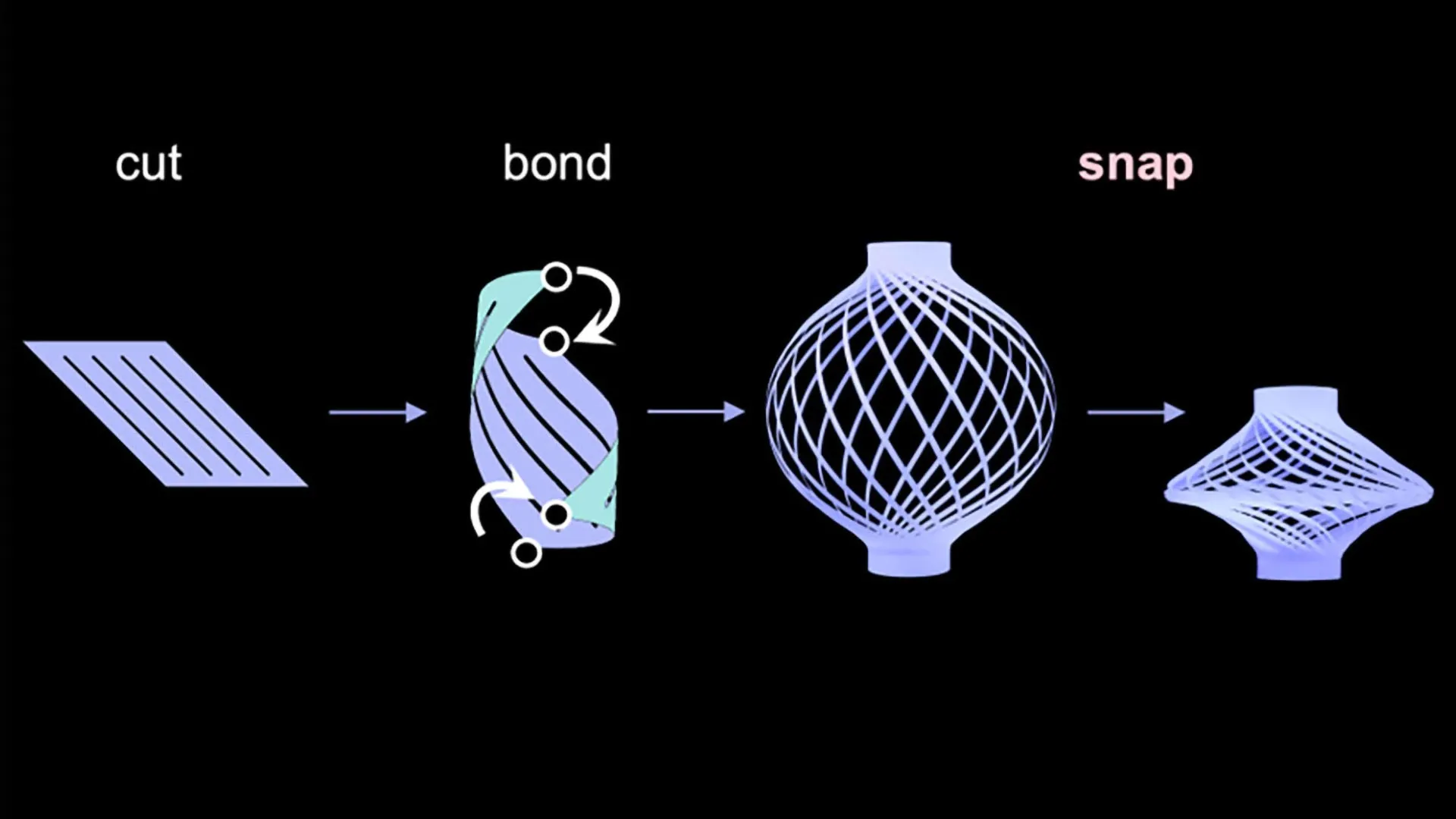Researchers have developed a polymer structure shaped like a “Chinese lantern” that can quickly change into more than a dozen curved, three-dimensional forms when it is compressed or twisted. This transformation can be triggered and controlled…

Researchers have developed a polymer structure shaped like a “Chinese lantern” that can quickly change into more than a dozen curved, three-dimensional forms when it is compressed or twisted. This transformation can be triggered and controlled…